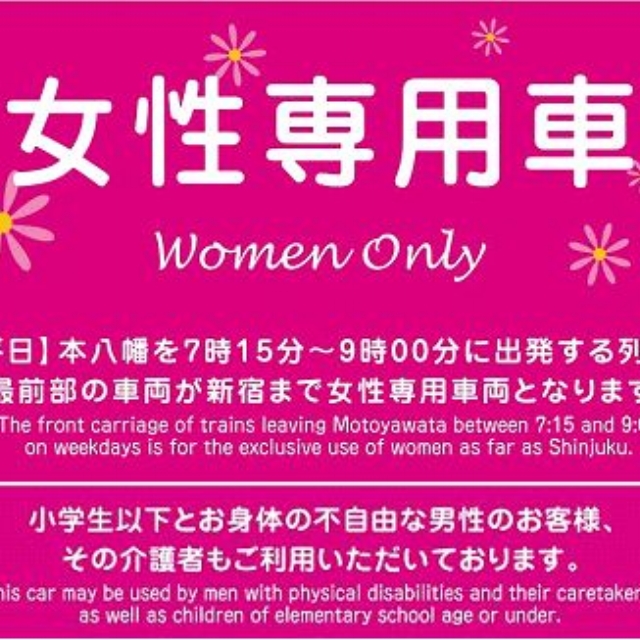FeMENism
"Feminism." I hope, for the sake of all feminists, the feminist movement, and all those who are influenced by feminism, that whoever came up with this word was fired for their work (if such a thing happens). Because look at it. Feminism. FEMinism. Okay, let's take a step back first. Tell me what the problem is with the following words: policeman, mailman, fireman, stewardess. See, they're gender-specific, meaning that they insinuate that certain occupations are to be filled by a certain gender, which, if you've made it this far in this magazine, we think is bullshit. COMPLETE shenanigans. But you see, we're hypocrites for as long as the current, prevalent idea of feminism exists. Because the term "feminism" seems gender-specific, doesn't it? FEMinism. FEMale.
"So, feminism is for girls, right?" The unknowing reader may think. I understand where this confusion is coming from, and as part of the feminist community, I sincerely apologize for this horrendous branding decision. By calling ourselves "FEMinists," we've basically shot ourselves in the foot at the starting line. So to clear things up a bit, I'm gonna start by answering two questions:
1. Who is feminism for?
You. You, the reader, who decided to come read this article. Your gender is irrelevant. Feminism is for you. Which leads to my second question.
2. What is its aim?
Equality. Tolerance. Freedom. Letting people be who they want to be, and letting them do whatever they want (as long as it isn't harming anybody else). You're a woman and want to be in the police force? Go ahead! You're a man and want to ask passengers if they want beef or chicken? Knock yourself out! See? Equality. Tolerance. Freedom. This is what feminism is all about.
Now the common misconception that people have is that it is only about giving opportunities for women to be liberated from the duties and obligations that are imposed onto them by society. It is true, but it only captures half of the essence of feminism. The other half? The male half. Another misconception that I'd like to counter is that, contrary to how women are being forced to be feminine, men are allowed to be masculine. But take this into perspective. Are men really being masculine of their own will? Is it out of will, or obligation that men become the breadwinners of their family? What about guys that like to cook? Is it so rare for guys to like cooking that TV networks feel like they need to create a separate cooking show specifically to guys (i.e. Danshi-gohan, a Japanese cooking show)? As much as women are forced to be feminine, at the same time, men are being forced to be masculine, or in other words, to not be feminine.
"So guys want to cook, then let them cook, like I care," the skeptic might say. Fair enough. I understand that if someone genuinely doesn't care much for cooking or other activities that are, for no apparent reason, assigned to a certain gender, then it would be difficult for that person to feel empathetic. Kind of like how I don't really much care for soccer, so the outcome of the next World Cup has no special meaning to me. But you know what unanimously affects us?
DEATH.
Suicide is the leading cause of death in Japan for men aged 20-44 (Chambers, 2010), with over 21,000 people committing suicide in 2016. Death is the ultimate equalizer, but the numbers imply that equality only happens after the death, and not during what leads up to it. Of the 21,000 suicides, 15,000 of them were committed by males. That's a whopping 68%! Now, these numbers imply two things. The first being that patriarchy is still a prevalent social system in Japan. Responsibilities and the stress that accompany them are still unequally distributed among sexes, and there is a need to even things out, both for the women who are seeking equal opportunities as men, and the men who are carrying much more than their bodies and minds can handle. Another implication is that there is a social pressure for men to not seek the help that they so obviously need. Asking for help, quitting, spilling the beans. All of these things are the most effective, and supposedly easiest ways to alleviate stress, possibly preventing suicide. However, at the same time, they are considered to be emasculating for men, making them feel like they've somehow "lost" if they were to complain or seek help. It's no mystery why men are committing suicide so often.
Like I said, feminism is all about equality, tolerance, and freedom. Whatever gender stereotypes and norms that are imposed onto us, be it femininity towards women, or masculinity towards men, feminism is there to destroy. Regardless of if you want to be a "womanly" man, a "manly" woman, a "manly" man, or a "womanly" woman, or something that isn't defined by either the words "manly" or "womanly," feminism has got your back. So, please, don't be scared by the name. Because in my book, there's as much MEN in "feMENism," as there's FEM in "feminism."
Reference:
Japan: Ending the Culture of the 'honorable' Suicide. (2010, August 10). Retrieved June 14, from theguardian.com







